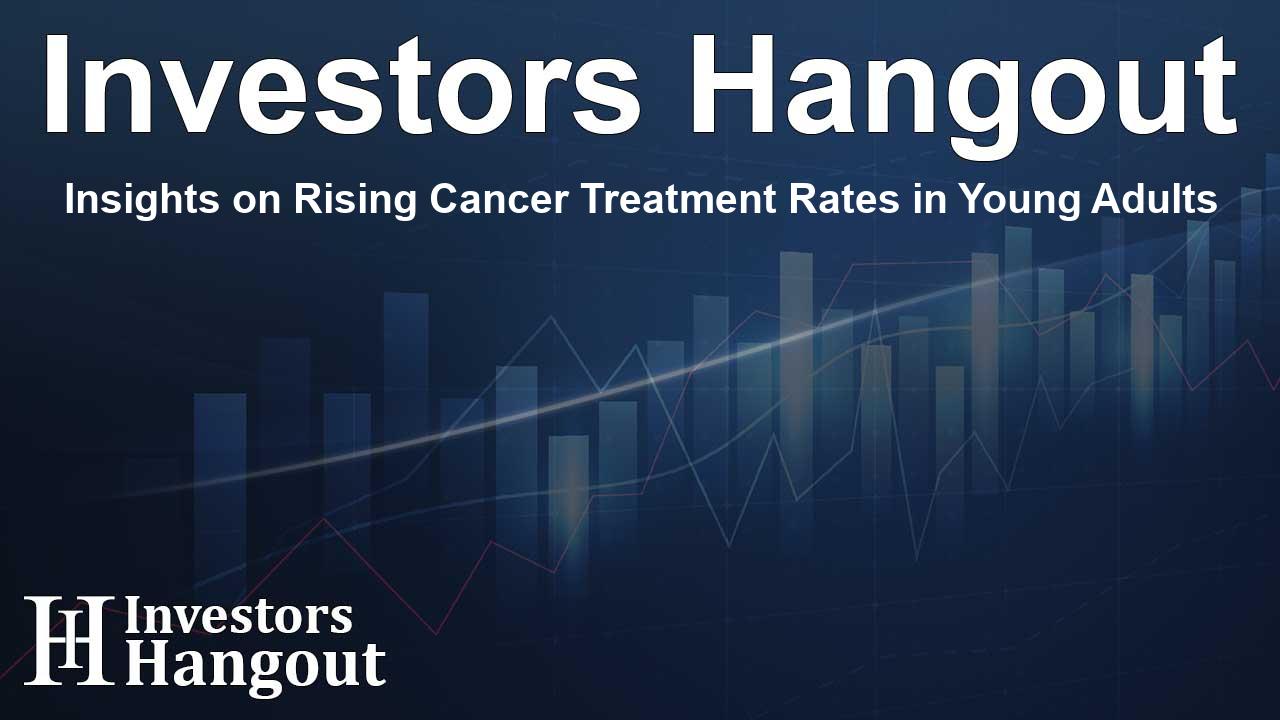Insights on Rising Cancer Treatment Rates in Young Adults

Increase in Cancer Treatment Rates Among Young Adults
Recent findings indicate a significant rise in cancer treatment rates for young adults aged 18 to 29, showcasing a notable increase of 11.7 percent between 2020 and 2023. This surge points to a growing awareness and accessibility of cancer care services for younger patients.
Common Types of Cancer Among Young Adults
According to current data, the most prevalent cancer types for adults aged 18 to 49 include skin, breast, and thyroid cancers, along with cancers of the digestive organs and female genital organs. These insights are critical in identifying the areas where increased focus and resources may be required.
Detailed Trends in Cancer Treatment
FAIR Health's analysis, based on over 49 billion healthcare claim records, highlights unique trends in cancer treatment rates across various age groups. The report emphasizes that while the overall cancer treatment rates for patients aged 18 to 49 have seen fluctuations, the increase in the younger segment is particularly notable.
Growth in Healthcare Costs
The report elaborates on the financial implications of cancer treatment, revealing that young adults diagnosed with cancer incurred significantly higher medical costs compared to their non-cancer counterparts. For patients aged 18 to 49, the median medical expenses within the first year after diagnosis exceeded $8,400, indicating the need for robust insurance coverage and support mechanisms.
Impact of Vaccination and Screening
Cancer prevention strategies, particularly vaccination programs, have shown varying levels of engagement among young adults. While 0.8 percent of patients aged 40-49 received the hepatitis B vaccine in 2023, 0.6 percent of those aged 18-29 participated. This data underscores the importance of targeted health campaigns aimed at promoting vaccinations among young groups.
Increasing Cancer Screening Rates
Additionally, the report notes that the percentage of patients aged 40 to 49 who underwent any cancer screening rose significantly from 25.8 percent in 2016 to 35.4 percent in 2023. Such increases reflect a shift towards proactive health measures, which can lead to earlier detection and better treatment outcomes.
Conclusion
FAIR Health's detailed investigation not only sheds light on the evolving landscape of cancer treatment among young adults but also accentuates the necessity for ongoing education and outreach concerning cancer risks and preventive measures. As treatment rates rise, the healthcare system must be prepared to meet these challenges while supporting young patients through their journey.
Frequently Asked Questions
What are the most common types of cancer in young adults?
The five most common types of cancer in young adults aged 18 to 49 include skin, breast, thyroid, digestive organs, and female genital organs.
What was the increase in treatment rates for young adults recently?
The treatment rates for patients aged 18 to 29 increased by 11.7 percent from 2020 to 2023.
How does cancer treatment cost compare for young adults?
Young adults diagnosed with cancer faced a median medical cost of over $8,400 in the first year after diagnosis.
What role do vaccinations play in preventing cancer?
Vaccinations, such as the hepatitis B vaccine, are crucial in preventing certain types of cancer related to viral infections.
Are cancer screening rates increasing among young adults?
Yes, cancer screening rates among adults aged 40 to 49 increased significantly, highlighting a growing awareness of the importance of early detection.
About The Author
Contact Owen Jenkins privately here. Or send an email with ATTN: Owen Jenkins as the subject to contact@investorshangout.com.
About Investors Hangout
Investors Hangout is a leading online stock forum for financial discussion and learning, offering a wide range of free tools and resources. It draws in traders of all levels, who exchange market knowledge, investigate trading tactics, and keep an eye on industry developments in real time. Featuring financial articles, stock message boards, quotes, charts, company profiles, and live news updates. Through cooperative learning and a wealth of informational resources, it helps users from novices creating their first portfolios to experts honing their techniques. Join Investors Hangout today: https://investorshangout.com/
The content of this article is based on factual, publicly available information and does not represent legal, financial, or investment advice. Investors Hangout does not offer financial advice, and the author is not a licensed financial advisor. Consult a qualified advisor before making any financial or investment decisions based on this article. This article should not be considered advice to purchase, sell, or hold any securities or other investments. If any of the material provided here is inaccurate, please contact us for corrections.
